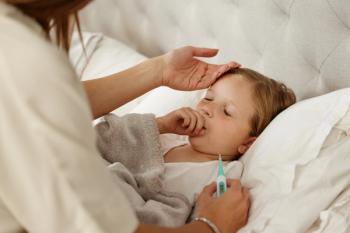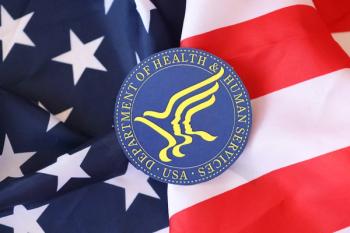
COVID-19 Vaccine Safe for Children Who Had Previous MIS-C Diagnosis
Patients with a history of multisystem inflammatory syndrome in children (MIS-C) completed a questionnaire about adverse reactions following COVID-19 vaccination, and no serious adverse events were recorded.
Patients with a history of multisystem inflammatory syndrome in children (MIS-C) are not at an increased risk of experiencing serious adverse events after COVID-19 vaccination, according to a recent study.
MIS-C presents in the weeks following COVID-19 infection in rare occurrences. While data has shown COVID-19 vaccines reduce the risk of COVID-19 infections and complications, there is little evidence on the safety of the vaccine following MIS-C.
The Centers for Disease Control and Prevention recommends waiting at least 90 days after MIS-C diagnosis before receiving a COVID-19 vaccination. However, it is unknown if the risk of a similar immune response after vaccination is present.
As some patients and families may feel concerned at the lack of information on vaccine safety following MIS-C, investigators conducted a cross-sectional study to determine the presence of adverse reactions from the COVID-19 vaccine in individuals with a history of MIS-C.
Participants were individuals enrolled in the Long-Term Outcomes After the Multisystem Inflammatory Syndrome in Children study with a history of MIS-C. Patients were eligible for vaccination if they were aged at least 5 years and it had been at least 90 days since MIS-C diagnosis. These patients were contacted and asked to complete a questionnaire.
There were 895 patients eligible for vaccination during data collection, 385 of which were contacted. Of these, 48.1% received at least 1 vaccination dose. The median age of participants was 12.2 years, with 47% being aged 5 to 11 years, 50.3% being aged 12 to 17 years, and 2.7% being aged 18 to 20 years.
The initial vaccination dose was administered at a median 9 months after MIS-C, with 16.8% of patients receiving 1 dose, 76.9% receiving 2 doses, and 6.5% receiving 3 doses. The most common vaccine given was the BNT162b2 vaccine.
Mild adverse reactions were seen in 48.6% of patients, with arm soreness and fatigue being the most common. Medications were used to treat adverse reactions in 17.3% of patients, while 2.2% sought medical evaluation. None of the patients needed testing or hospitalization.
Medical care was given for conjunctival injection, chill, fever, abominable pain, arm soreness, arm redness or swelling, and fatigue. Only 2 of the 4 patients who sought medical evaluation were given medications, with 1 given acetaminophen and 1 given ibuprofen.
Only 1 girl aged 5 to 11 years experienced chest pain, which presented 1 day after the second dose and lasted for a single day. She did not attempt to receive medication or medical care.
Palpitations were seen in 2 patients in the male groups aged 12 to 17 years and 18 to 20 years. Palpitations appeared 1 day after the first or second dose and did not last more than 48 hours. Neither patient sought medical evaluation.
No serious adverse events were reported, leading investigators to conclude COVID-19 vaccination administered at least 90 days after MIS-C diagnosis has a similar safety profile to that in the general population.
Reference
Elias MD, Truong DT, Oster ME, Trachtenberg FL, Mu X, Jone P, et al. Examination of adverse reactions after COVID-19 vaccination among patients with a history of multisystem inflammatory syndrome in children. JAMA Netw Open. 2023;6(1):e2248987. doi:10.1001/jamanetworkopen.2022.48987
Newsletter
Pharmacy practice is always changing. Stay ahead of the curve with the Drug Topics newsletter and get the latest drug information, industry trends, and patient care tips.























